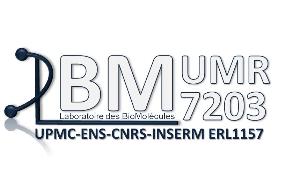"Application of 3-Nitro-2-Pyridinesulfenyl (Npys) Derivatives to Chemical Biology, Peptide Chemistry and Medicinal Chemistry"12th 2016

"Application of 3-Nitro-2-Pyridinesulfenyl (Npys) Derivatives to Chemical Biology, Peptide Chemistry and Medicinal Chemistry"
Abstract :
3-Nitro-2-pyridinesulfenyl group (Npys) is a classical protective group developed in 1980, particularly for protecting a thiol (SH) group with a unique characteristic; “-Cys(Npys)-“ readily reacts with an unprotected SH group to form a disulfide bond. Based on this chemistry, we recently developed SH-selective solid-supported biotinylation and oligoarginylation reagents as tools of Chemical Biology. A compound with an SH group can be selectively labeled and the resulting labeled compound can be released from the resin and easily recovered in a high purity by filtration. Moreover, using a synthesized “Npys chloride resin”, we developed a “solid-phase disulfide ligation” method to prepare a disulfide peptide from two kinds of peptide fragments with cysteine residues. Application of this strategy realizes a “disulfide-led synthetic methodology” for disulfide-containing cyclic peptides. Oxytocin was efficiently synthesized as a fundamental model for more complex cyclic peptides. In the seminar, I would like to discuss further about the application of this method to the synthesis of a noncovalent–type antibody–drug conjugate (NcADC) in Medicinal Chemistry. As more recent data, I also discuss about new a solid- or no-solid-supported Npys reagent that enhances intra-molecular disulfide bond formation between two cysteine residues for the effective synthesis of cyclic-disulfide peptides, In use of this reagent, we successfully synthesized hANP and a-conotoixin without oligomer formation. Finally, if time allows, I would like to discuss another topic regarding our mid-sized peptides research in Medicinal Chemistry that is related to the development of myostatin inhibiting peptides as an attractive therapeutic approach towards muscle atrophic disorders.
Yoshio Hayashi, 1960, Tokyo University of Pharmacy (BS, 1983). Faculty of Pharmaceutical Science, Kyoto University (MS, 1985; Ph.D. 1990), Research Experience: 1986-1988: R&D Center, Calpis Food Industry Co., Ltd. 1988-1991: Life Science Research Center, Nippon Steel Corporation. 1991-1999: Senior Researcher, Nippon Steel Corporation. 1999-2001: Lecturer and 2001-2007: Associate Professor, Department of Medicinal Chemistry, Kyoto Pharmaceutical University. 2007-present: Professor, Department of Medicinal Chemistry, Tokyo University of Pharmacy and Life Sciences. Research Interests: Peptide Chemistry, Peptidomimetics and Medicinal Chemistry. Award: The Pharmaceutical Society of Japan Award for Divisional Scientific Promotions 2009.





